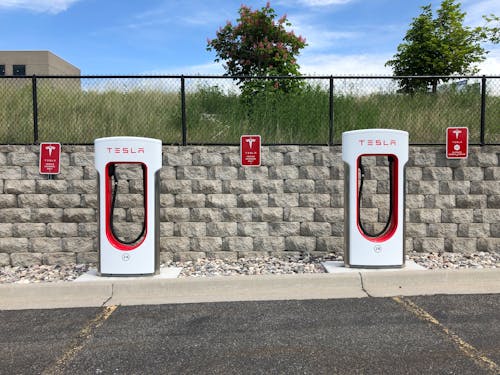The Rise of Electric Cars: Transforming the Auto Industry
Electric cars are revolutionizing the automobile industry, leading to changes in consumer behavior and environmental impact. With advancements in technology, electric vehicles (EVs) promise reduced emissions and lower operational costs. This article explores the various dimensions of this transformation, including technological innovations, market trends, and their implications on society.
Technological Innovations in Electric Cars
Electric cars have witnessed remarkable technological advancements over recent years. Battery technology, in particular, has improved tremendously, with lithium-ion batteries currently dominating the market. These electric cars now offer longer ranges, which significantly alleviates consumer concerns regarding range anxiety. Furthermore, advancements in charging infrastructure, such as rapid charging stations, have made it easier for users to charge their electric vehicles while out and about. Innovations in regenerative braking and energy efficiency are providing electric cars with even greater appeal. As technology continues to evolve, we expect to see even more powerful electric cars and innovative solutions that cater to a diverse user base.
Market Trends and Consumer Adoption
The electric car market is experiencing accelerated growth as consumer awareness and acceptance begin to rise. Major automotive manufacturers are investing heavily in the development of electric cars, leading to a wide array of options for consumers. Governments worldwide are also implementing incentives, such as rebates and tax breaks, to encourage electric vehicle sales. This not only helps in boosting the market but also plays a critical role in promoting sustainability and reducing carbon emissions. Additionally, social media and online platforms have made information about electric cars more accessible, encouraging potential buyers to consider them. The combination of increasing availability, technological advances, and government support is creating a positive feedback loop for electric car adoption.
The Environmental Impact of Electric Cars
One of the primary motivations for consumers to switch to electric cars is the promise of a lower environmental footprint. Electric vehicles produce zero tailpipe emissions, which significantly contributes to improving air quality, especially in urban areas. While there are concerns regarding the environmental impact of battery production and disposal, the overall life cycle emissions of electric cars are considerably lower compared to traditional vehicles. As the power grid continues to shift towards renewable energy sources, the carbon footprint associated with charging electric cars will decrease even further. Therefore, electric cars represent a crucial element in the fight against climate change and promoting a sustainable future.
Electric Cars and Economic Implications
The rise of the electric car industry is also influencing economic dynamics across the globe. As businesses shift towards electric fleets, they benefit from significantly lower fuel and maintenance costs. This change not only affects corporate bottom lines but also creates new jobs in manufacturing and infrastructure development. Furthermore, electric cars have led to a boom in technology sectors, paving the way for advancements in energy storage and smart grid technologies. Economic incentives for electric vehicle adoption can also stimulate local economies as charging infrastructure expands. Thus, electric cars are contributing to a meaningful shift in economic paradigms as well.
Challenges Facing Electric Cars
Despite the considerable advantages of electric cars, the industry still faces several challenges that hinder its growth. One of the most pressing issues is the limited availability of charging infrastructure. While major cities are developing networks of charging stations, many areas still lack adequate coverage, which can deter potential electric car buyers. Moreover, the higher upfront costs of electric vehicles compared to traditional petrol-powered cars may continue to be a barrier for many consumers. Public perception around battery lifespan and replacement costs must also be addressed to foster greater acceptance. The electric car industry’s ability to overcome these challenges will be critical for its long-term success.
An Outlook on the Future of Electric Cars
Looking ahead, the electric car landscape is poised for significant changes. As technology continues to advance, features such as autonomous driving will likely be integrated into electric vehicles, enhancing their appeal even further. Emerging markets are also beginning to adopt electric vehicles more rapidly, with manufacturers catering to local needs. Electric cars are not just a trend; they represent a fundamental shift in how we think about mobility. With ongoing innovations, supportive policies, and the urgency of climate change, the future of electric cars seems bright. The transformation of the auto industry will not only shape how we travel but also how we engage with our environment.
